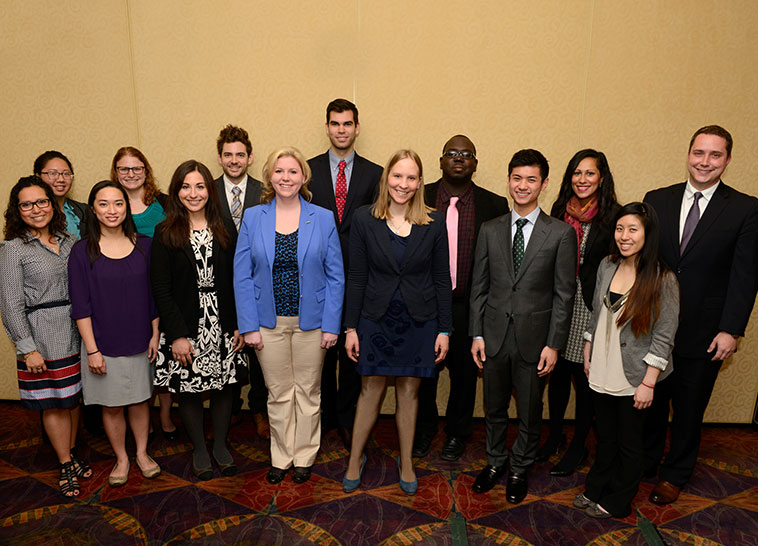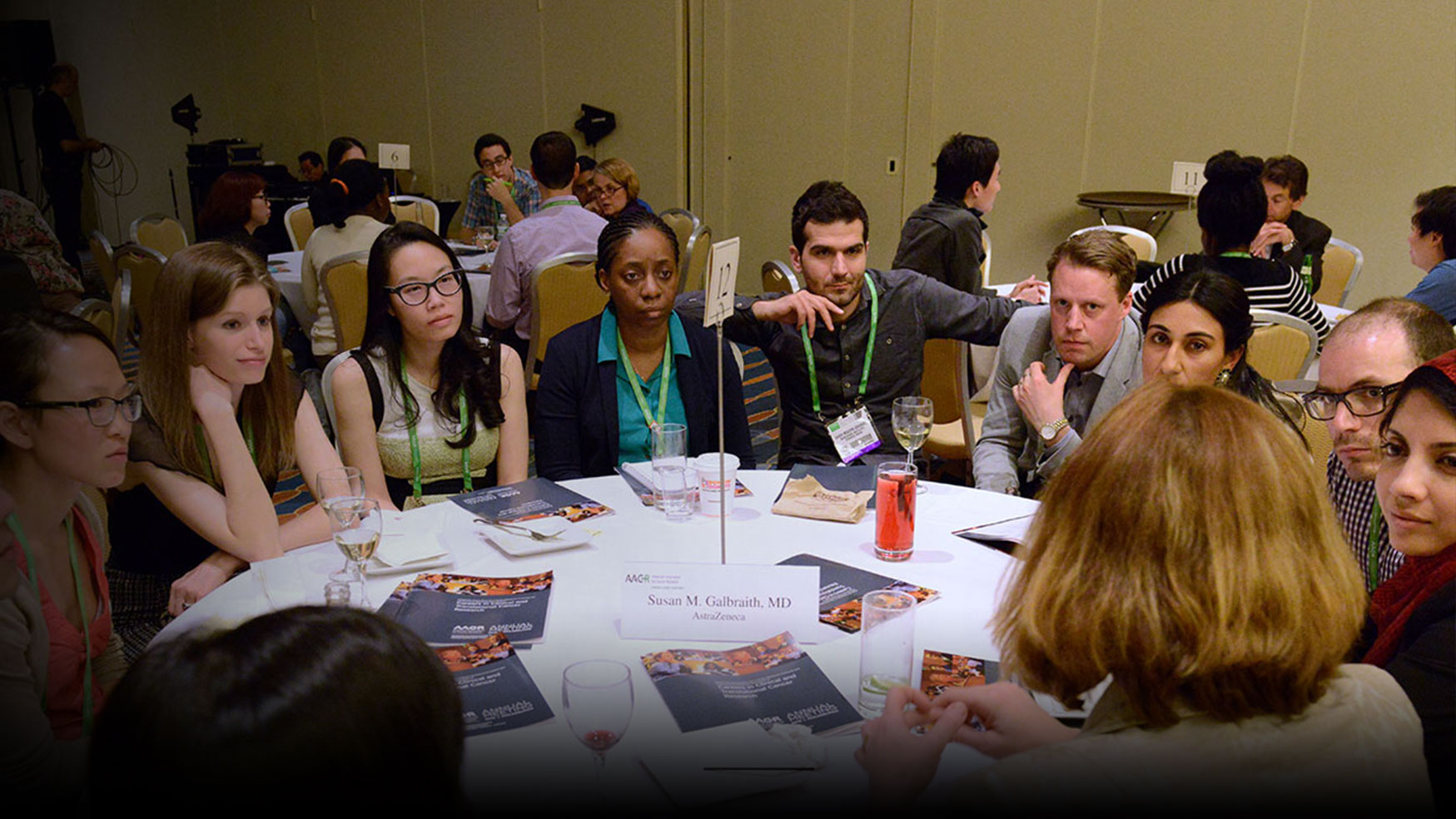
AACR Membership —
Members by the Numbers
The foundation of the AACR is a diverse and dedicated membership, numbering over 35,000 investigators from around the world. These members are the heart of the cancer research community, working together in a global effort to prevent and cure cancer. Participation in cutting-edge AACR programs provides members with vital opportunities to foster important relationships and collaborations across the entire spectrum — from early-career researchers to senior investigators, from academia to industry, and from scientists to patient advocates. Members of the AACR make critical discoveries in all areas of inquiry, from epidemiological, prevention, and basic science to translational and clinical research.
Members by Category
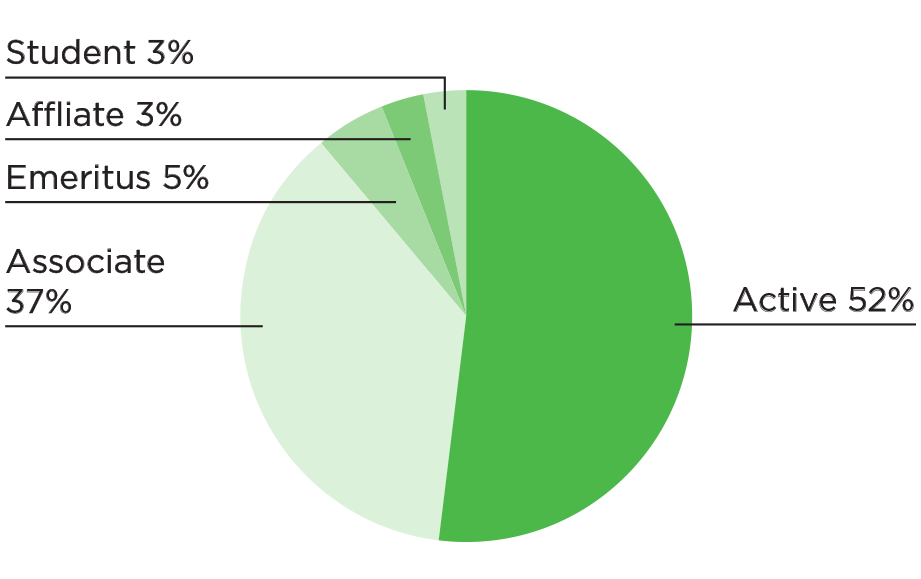
Active Members: Established laboratory researchers, physician-scientists, clinicians, and population scientists
Associate Members: Young laboratory scientists and physicians-in-training (graduate students, medical students and residents, and clinical and postdoctoral fellows)
Student Members: Undergraduate and high school students
Emeritus Members: Active members who have reached the age of 70 years
Affiliate Members: Other health care professionals (practicing oncologists, nurses, laboratory technicians, non-scientific corporate professionals, and patient advocates)
58
Nobel Laureates have been members of the AACR.
103
Patient advocates are members of the AACR.
2,658
Individuals have been AACR members for more than 25 years.
143
Individuals have been AACR members for more than 50 years.
101
Countries are represented by AACR members.
Note:
Totals may not equal 100% due to rounding.
Members by Work Setting
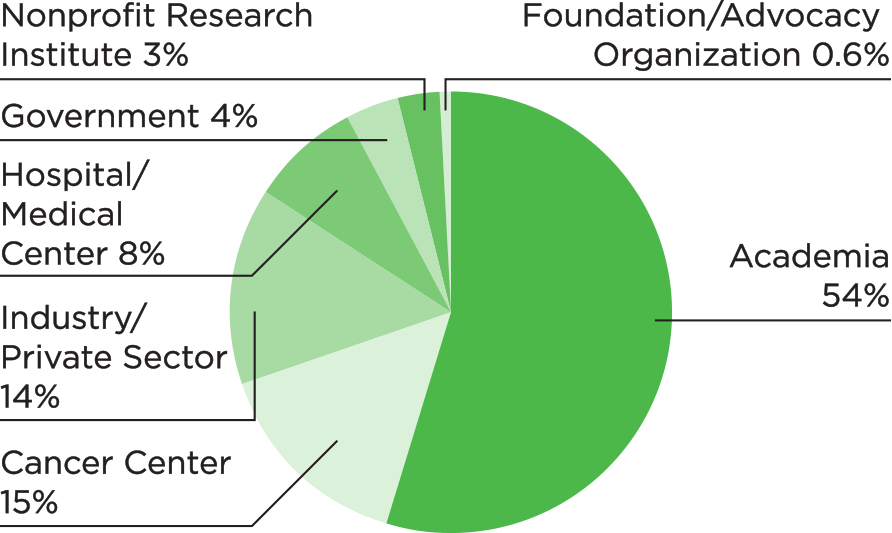
Members by Race/Ethnicity
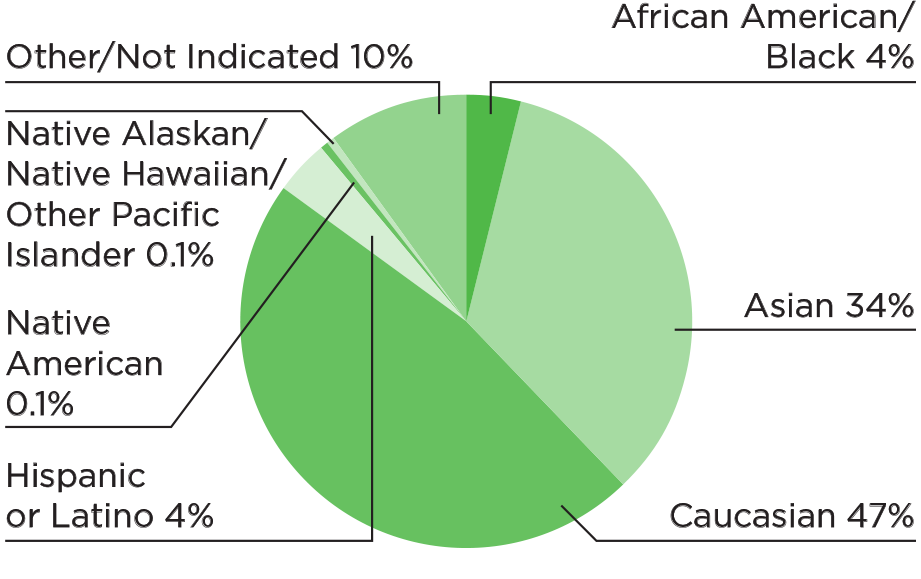
Members by Degree
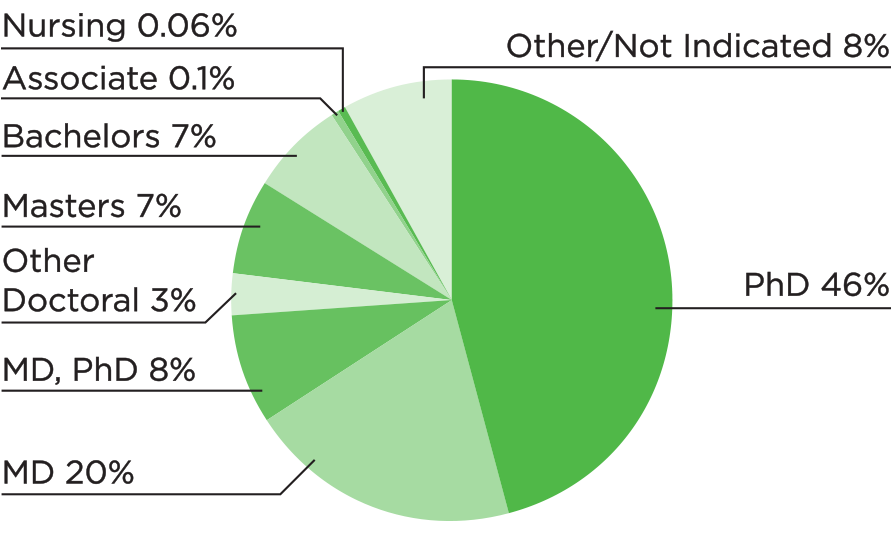
Members by Gender
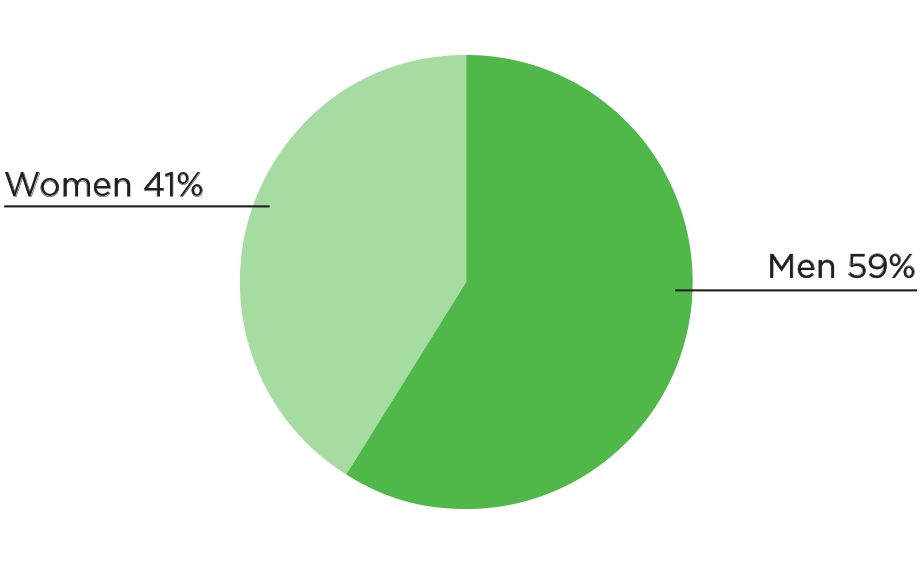
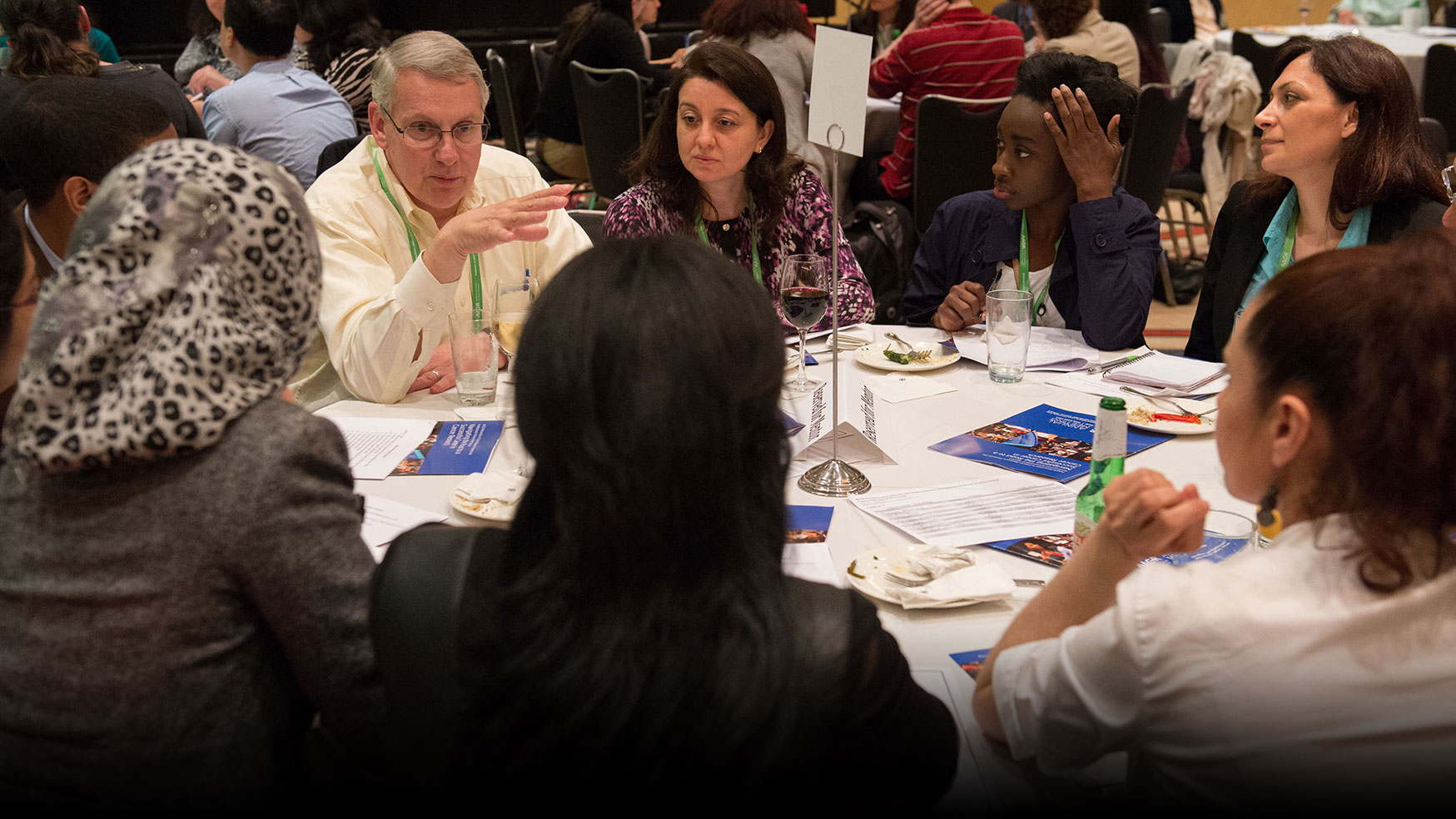
AACR Membership —
Diversifying the Cancer Workforce
Cancer touches everyone, affecting patients and their loved ones regardless of their age, ethnicity, or gender. To maximize patient benefit, the AACR works to ensure that the cancer workforce is as diverse as the community of patients it serves. For decades the AACR has pursued this goal by identifying, training, and mentoring talented investigators in populations that are underrepresented in the scientific community. These efforts are coordinated by three vital groups: Minorities in Cancer Research (MICR), Women in Cancer Research (WICR), and the Associate Member Council (AMC).
AACR-Minorities in Cancer Research (2015 Council Chairperson: Edith A. Perez, MD)
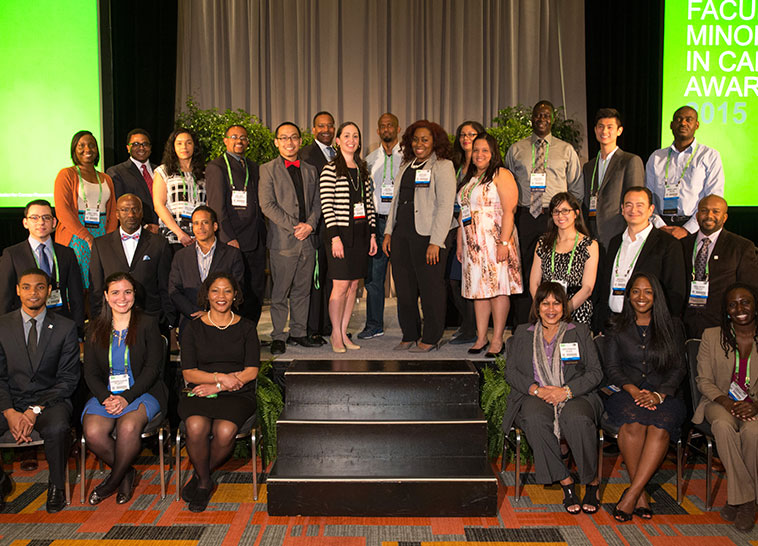
AACR Women in Cancer Research (2015 Council Chairperson: Victoria M. Richon, PhD)
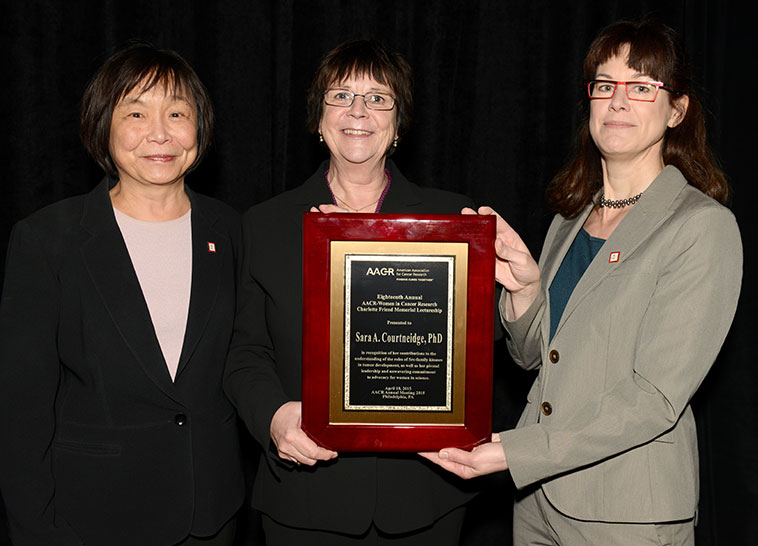
AACR Associate Member Council (2015 Chairperson: Mark D. Stewart, PhD)
